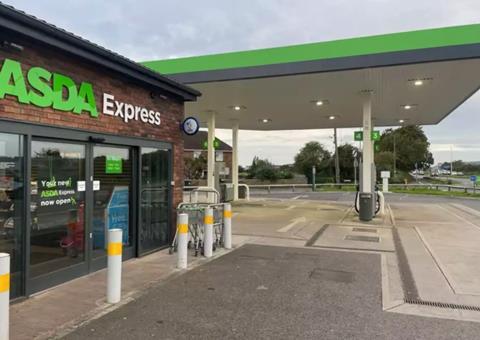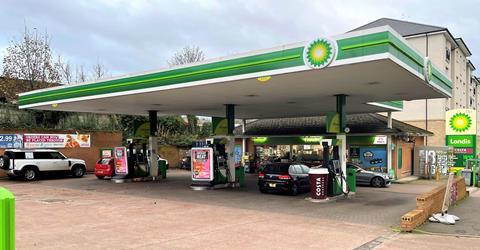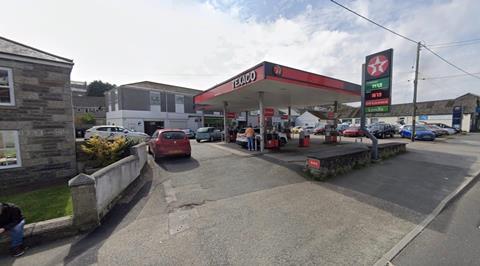
The biggest property story of 2023 was, of course, the sale of 132 Co-op sites to Asda, closely followed by EG Group selling most of its UK estate to Asda. This led to a massive roll-out of the Asda Express brand as Co-op and Euro Garages fascias were taken down to make way for the bright green Asda logo.
In mid-November, Asda announced the opening of its 100th Asda Express store which the grocery giant said brought “Asda quality and value to the local community” following the conversion of an EG petrol forecourt in Hexham. Today there are 229 Asda Express stores with 221 of those on forecourts.
While the end of 2023 brought much excitement, Steve Rodell, managing director – retail at Christie & Co, said transactional deal flow was slow until H2, largely due to hesitating buyers from 2022 and the increased cost of borrowing.
“Stabilising inflation and interest rates helped to unlock the market in the second half, and as revealed in our latest annual Business Outlook 2024 Report, Christie & Co experienced a 20% uptick in deals agreed and an 8% increase in exchanges.”
At independent level, he said asset sales under £3m drove market activity. “Supply was limited by the reluctance of retailers selling, with many opting to invest in their existing sites instead.
“Sites that did reach the market were quickly snapped up by existing retailers who were geared up to acquire further sites and usually known to the Christie & Co network as reliable buyers. Notwithstanding this, marketing of opportunities to the right buyer set ensured optimum pricing through a competitive sale process attracting multiple offers.”
Rodell says deal management by Christie’s agents was a key feature of all their successfully completed sales. “There appears to be a “post Covid” lag among professionals involved in the property industry which can result in protracted sales. Never has it been so important to have a professional agent pushing deals along to prevent ‘deal fatigue’,” he explains.

Full of praise
Christie & Co’s many deals in 2023 included the sale of Crakehall Filling Station near Bedale, North Yorkshire, which had been operated by the Jobling family for 55 years. Owners Terry and Shirley Jobling sold the business because they were retiring. They were full of praise for Andrew Birnie, retail director at Christie & Co, for helping them get the deal and price they wanted.
Another deal was the sale of Esso Watton, in Norfolk, which changed hands for the first time in 46 years. Again the owner – Gina Brett – wanted to retire. She was delighted in agreeing a sale substantially in excess of the proposed asking price on an off-market basis.
Christie & Co was also behind Project Squash in Scotland where the company completed the sale of two high turnover petrol filling stations in the Central Belt to established forecourt operators from England, who were looking to expand into Scotland.

Positive impact
Much further south, it’s been a busy year for regional firm, Taunton-based WT Estates. MD William Trott says they were involved in several deals across the year but his highlights included the sale of Tower Filling Station in Seaton, Devon and Wellington Road Filling Station in Taunton to Top 50 Indie ‘bubbling under’ company, Plaistow Broadway Filling Station. “Both sales were dealt with quickly and confidentially and have made a positive impact on their portfolio,” says Trott. Another standout sale was of Falmouth Garages in Penryn, Cornwall to NTS Retail. Trott reports that since the sale, the site has undergone major renovation works including the addition of a new shop.
Mark Frostick, associate at Rapleys, says that in the independent market, opportunities to acquire sites have been relatively few and far between with operators generally looking to hold onto sites as margins and profits continue to remain strong. “We continue to get daily calls from prospective purchasers and even regular calls on sites that we have sold years ago from purchasers hoping that they might be coming back to the market.
He says that where Rapleys was most active in 2023 was with new-to-industry sites with operators still looking at both knockdown rebuilds and bringing old sites back into the market: “We have recently agreed a deal in London on a site that hasn’t been an active petrol station for 20 years.”
Meanwhile, he says demand is strong for roadside developments especially in transient sites where there is potential for food to go and other income streams alongside the forecourt itself.
“However, these transactions can be slow especially with the increasingly complex needs of a planning application even for a relatively basic scheme. For example, two sites Rapleys was involved with triumphed in their regions at last year’s Forecourt Trader of the Year Awards: Rontec Billingshurst and Welcome Break Newark, however the initial stages of the latter instruction started back in 2016, meaning it was nearly six years from start to the site being open and trading. It’s a clear sign that operators should be prepared for a long-term development but also for the need for specialist planning advice from a consultant with experience.”
Rodell says buyers looking to the future have become more selective, focusing on larger, strategically located sites that can accommodate multiple fuel and retail offers. “The government’s postponement of its ban on the sale of ICE cars to 2035 has helped market sentiment and afforded retailers more time to adapt and futureproof their business before the inevitable industry transition to alternatively fuelled vehicles,” he explains.
“While there is a notable shift in consumer preference towards EVs, it has not reached a critical mass, due to the challenges in achieving widespread adoption. EVs still only account for 2.2% of vehicles on the road. The 2030 target was deemed unrealistic in Christie & Co’s previous year’s analysis – a view further validated throughout 2023.”
He says that where retailers have developed a ‘proper’ EV charging facility, the income can be a significant contributor to the bottom line. However, suitable sites in the existing UK PFS (petrol filling station) network are rare where there is both sufficient grid power and space to devote to charging, not to mention the eye-watering cost of installation.
Frostick adds: “Our planning team has been busy obtaining consents for existing sites to add EV charging where required. However, most operators have seen this as an add-on to their existing site rather than any major plan to convert the site to electric charging only. Operators should be aware, however, that there are more and more operators looking at EV charging sites only and therefore they will be competing with them for sites.”
What about this year?
Trott at WT Estates expects the trends of 2023 to continue this year as the big groups’ appetite to expand continues. “We have already been appointed by one of the Top 10 Indies to market several of their properties confidentially across the UK. The project aims to make capital available to reinvest into other larger assets.”
Frostick too thinks 2024 is likely to see more of the same, with a lack of opportunities to acquire. But he flags up the fact that given the growth in the market, there could be some operators with rent reviews coming up who will need to consider carefully how much the market has improved in the last five years and will expect some significant growth.
Rodell concludes: “The outlook for the PFS market over the next five years is positive, and we estimate that the overall number of PFS will stabilise around 8,000 as smaller and less viable sites are forced out by increased competition and external factors.”



























